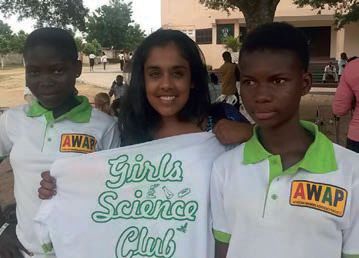
Physiology News Magazine
IUPS: the Two-way Physiology Street and the Mutual Benefits of Volunteering Expertise
Events
IUPS: the Two-way Physiology Street and the Mutual Benefits of Volunteering Expertise
Events
Anisha Tailor
Outreach Officer, The Physiological Society
https://doi.org/10.36866/pn.107.20
IUPS 2017
Rio, Brazil
In 2015, I took a six-month sabbatical from my role as Outreach Officer at The Physiological Society to set up the pilot education project, Lab_13 Ghana. The project aimed to establish a ‘proof of concept’ for a new model of science education in resource-constrained environments.
We planned to increase positive attitudes by enhancing practical education, encouraging student-led investigation and enquiry, and supporting local teachers. The project put students in charge of their own learning and lab space while being facilitated by a ‘Scientist in Residence’ such as myself. Just like adult scientists, young people in the lab proposed their own questions based on their world observation and, with support from a Scientist in Residence, worked through experiments to determine their own answers. This was in contrast to traditional talk and chalk teaching methods usually employed in rural schools, with many teachers believing that ‘doing’ science required specialist labs and equipment that only the richest schools have access to.
Our stock cupboard was the local markets and our recycling. My experience allowed me to witness first-hand a change in student attitudes towards science in just 6 months of a student-led approach. It has not only given me insight into the struggles of teaching science with limited resources, but an understanding of what local teachers want to gain from internationals making visits to their school.

You can read a fuller account of my experience in PN 101, Winter 2015, pages 14–15, or, if you are heading to Rio this summer for IUPS, you can join me in the symposium ‘The Two-way Physiology Street and the Mutual Benefits of Volunteering Expertise’. Joined by physiologists discussing their volunteer work in Zimbabwe and Nigeria, we will be discussing the benefits of volunteering, the discrepancies in the world between areas with plentiful resources and those who are resource poor, and the importance of partnerships.
